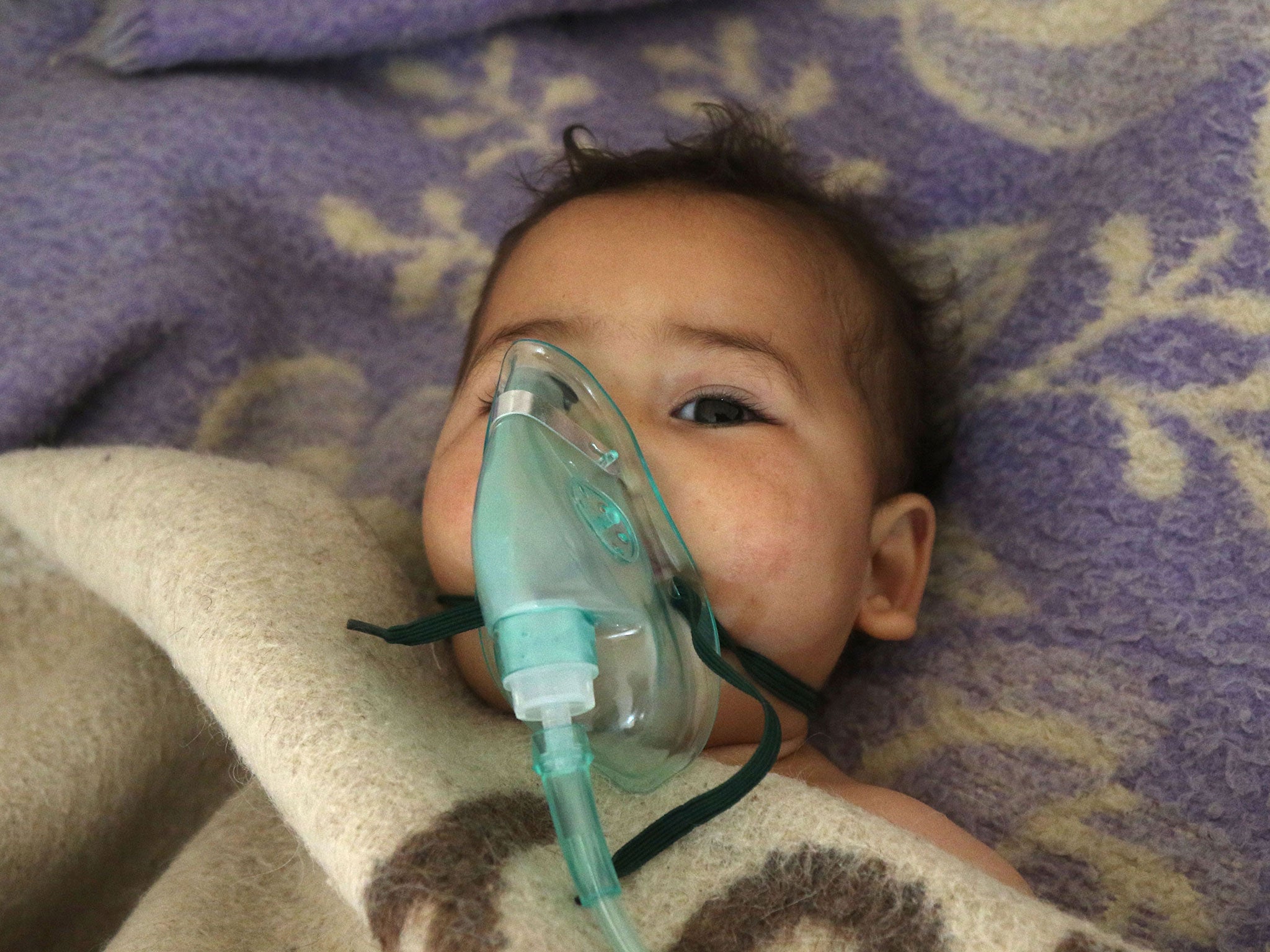Turkish autopsy results show chemical weapons were used in Syria attack
International outrage continues to mount over attack in Khan Sheikhoun which killed at least 52 adults and 20 children

Your support helps us to tell the story
From reproductive rights to climate change to Big Tech, The Independent is on the ground when the story is developing. Whether it's investigating the financials of Elon Musk's pro-Trump PAC or producing our latest documentary, 'The A Word', which shines a light on the American women fighting for reproductive rights, we know how important it is to parse out the facts from the messaging.
At such a critical moment in US history, we need reporters on the ground. Your donation allows us to keep sending journalists to speak to both sides of the story.
The Independent is trusted by Americans across the entire political spectrum. And unlike many other quality news outlets, we choose not to lock Americans out of our reporting and analysis with paywalls. We believe quality journalism should be available to everyone, paid for by those who can afford it.
Your support makes all the difference.Postmortems carried out on the bodies of people who died in a suspected gas attack in Syria show the victims were exposed to chemical weapons, Turkey’s justice minister has said.
More than 30 injured people were taken for treatment across the border in Turkey after local hospitals in rebel-held Idlib were overwhelmed in the aftermath of Tuesday’s attack. Three subsequently died, Bekir Bozdag said on Thursday, blaming the Syrian government for the incident.
A statement from the Syrian foreign ministry issued on Thursday again denied responsibility, saying that the army “has not and will not use chemical weapons against our people or terrorists” and a strike had instead targeted an extremist rebel group’s weapons depot. Damascus’ allies in Moscow also said that chemical weapons use is “absolutely unacceptable”, adding that there was no objective data from which to draw conclusions that the attack had been chemical.
At least 72 people died in the incident in Khan Sheikhoun, during which medical workers on the ground and other witnesses said victims suffered from convulsions, vomiting and suffocation – symptoms of inhaling chemical agents such as chlorine and sarin.
Medical charity Medecins Sans Frontieres (MSF) also said in a statement on Wednesday that evidence pointed to the use of both chlorine and sarin.
Damascus and the Kremlin both said that an explosion at a rebel ammunition depot was to blame for the deaths – an explanation the international community swiftly rejected.
Bashar al-Assad’s government gave up its chemical weapons stocks to an international watchdog in 2013 after a sarin gas attack in a suburb of Damascus which killed hundreds of civilians, although rebel officials have long accused the regime of keeping some of its arsenal.
The United Nations Security Council held an emergency session in New York on Wednesday to discuss imposing sanctions on those found responsible for this week’s attack – a move rejected by Russia’s deputy ambassador, Vladimir Safronkov.
Join our commenting forum
Join thought-provoking conversations, follow other Independent readers and see their replies
Comments